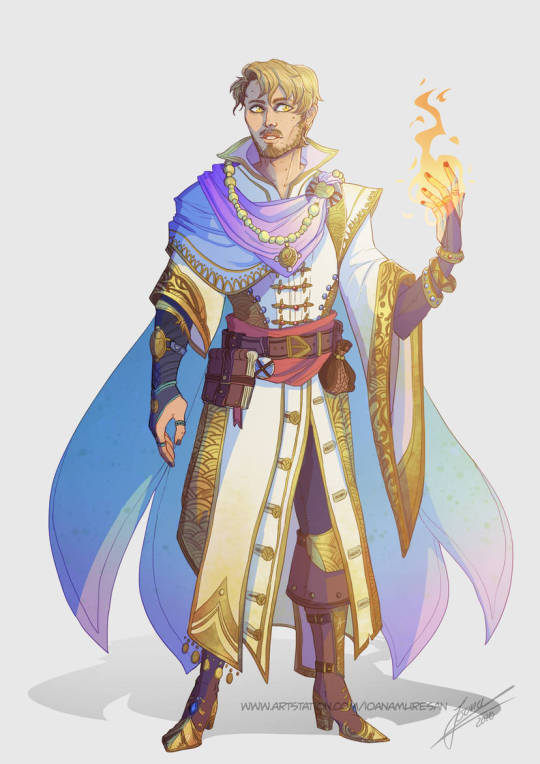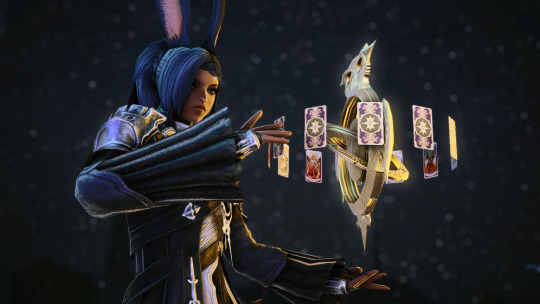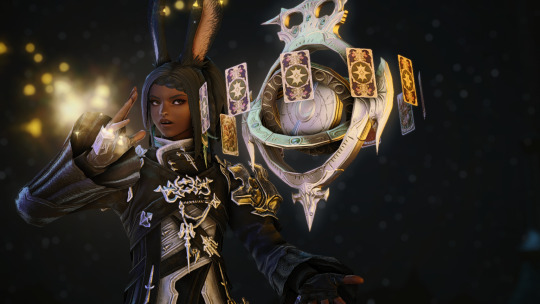#prestige class
Text
Prestige Class Spotlight 13: Balanced Scale of Abadar

(art by Ioana-Muresan on DeviantArt)
We’ll cover him eventually, but Abadar is the god of civilization, commerce, and advancement, and so his faith focuses not just in advancing and improving society, but also helping to uplift even the lowest dredges for the betterment of all, at least in theory. It can sometimes be hard for Abadarites to differentiate merchantilism from capitalism.
However, there are those among them that seek, above all else, to make sure that wealth stays balanced. These are the ones who return relics and heirlooms to their rightful owners, who go out and reclaim unclaimed treasures for modern civilization from tombs, dungeons, and other places where the wealth would go to waste.
These are the balanced scales, a branch of divine casters among the faithful that draw upon greater mysteries of the Master of the First Vault, and can even draw upon his many wonders in their effort to bring prosperity to civilization.
This is an interesting one, as it’s a prestige class that actually came out before the Pathfinder RPG itself actually did so, making this a D&D 3.5 prestige class. However, it’s fairly easy to convert over, replacing certain skills with their more modern counterparts.
It is, however, a very thematic prestige class given the deity they answer to, and the powers they offer can be quite useful.
This path requires a basic understanding of disabling locks and traps, as well as appraisal. Furthermore they must also have mastery over divine magic, enough to cast 3rd-level spells. This means that pretty much any divine spellcasting class can take part in it, though obviously minor casters tap into it later than others.
Naturally, as priests of Abadar, the Balanced Scales continue their training into divine magic, though perhaps at a slightly slower pace at first.
Magical locks and traps are often a problem in tombs and ruins, and so these mystics are blessed with a knack for disabling them.
They also learn to discern what is valuable at a glance, useful for determining what to take from a hostile environment.
The biggest treasure hoards are sometimes too big to be carried out practically. As such, they learn a bit of magic to turn an ordinary sack into a bag of holding for hours at a time, increasing their carry capacity significantly. Later on, they can make a bigger bag or create two at once.
Their training also includes lessons on bargaining and how to grease the wheels of society with the universal lubricant of money. This also applies in a different way when bargaining with bound outsiders and other beings in exchange for their supernatural services.
Those that distinguish themselves as devoted servants of Abadar gain access to a privilege that few beings period, let alone mortals, gain access to, which is access to the First Vault, the cosmic structure where Abadar keeps the first perfect example of every object that civilization has ever made across the entire universe, from art objects to practical items (or at least, very good replicas of them). Once a week, a balanced scale can draw upon the First Vault itself to conjure one of these items (or again, a replica) to their hands, up to a limit on value based on their mastery of divine magic. At first, these objects are mundane, but later they can be magical. However, these objects are so incredibly perfect that they cannot be sold, both because merchants would immediately pick up on their unnatural origin, but also because it is against the tenets of the Abadaran faith to sell false goods.
Finally, they can take their ability to access the First Vault to it’s logical extreme and actually go there, using it as a stepping stone to teleport either somewhere they’ve been before within range, or to the nearest temple of Abadar. However, there are two caveats. One is that since they have to travel physically through the vault to get to the exit portal that leads to their destination, it is not instantaneous. The other is that the raw amount of perfection on display is disorienting and overwhelming, threatening to sap the mind with the wonders on display. Thankfully, it’s physically impossible to swipe something while on this sojourn, preventing the balanced scale from being an unwitting or coerced accessory to a cosmic theft.
This prestige class has a nice mix of utility powers that make for a thematic arsenal for your lawful cleric/paladin/druid/inquisitor/warpriest that specializes in tomb-breaking and loot-gathering. Additionally, the ability to conjure whatever item you need for a situation makes this arguably Paizo’s first attempt at making gadgeteer character options, which I can appreciate. Your exact build will vary based on your class, but rest assured you’ll definitely have an element of utility problem solving and social interaction.
This really is a flavorful prestige class, After all, not every god lets their devotees borrow things from their private toy box, as it were. It is good time to remind oneself, however, of how much divine power and the benefits of such are a privilege to be given out, but also rescinded if the recipient proves unworthy. Now, one might think that getting to the point where you can get access to such wonders might put one beyond philosophical failings, but arrogance is also a hell of a drug.
Devastated by war and the fall of the royal lineage, the nation of Khomat is on the verge of collapse, but the followers of the Wealth God have a plan to stabilize the region and set up a new government with only a gentle guiding hand on their part, or so they claim. But in order to fund this transition of power, the church will need a new source of income, and the tombs of the old royal line are tempting targets indeed.
A hundred years after the entire Sovaca coast fell into the ocean at the will of vengeful gods, there are still remnants of their civilization that have withstood the cataclysm and the a centuries worth of ocean water. These days, both gillmen and locathah priests lead expeditions into these ruins, the former to reclaim the legacy of their forefathers, the latter to reclaim what the surface Sovacans took from them.
Ages ago, a shadowy cult laid claim to hundreds of souls through false promises in the land of Nemwa, dragging them en masse to the shadow plane and their velstrac masters alongside the art and sculpture of their culture as a trophy. Now, one brave soul blessed by the gods of civilization is assembling a party to free those souls and rescue those symbols of their culture.
#pathfinder#prestige class#balanced scale of abadar#gillmen#locathah#Dark Markets A Guide to Katapesh
11 notes
·
View notes
Text

Camillo! He is horrible and I love him!
#oc#pathfinder#sylph#unchained rogue#into#wizard#to make#Arcane Trickster#prestige class#I love him#he is sassy#and sharp witted#with a hatred towards poverty#and a vendetta against doors
2 notes
·
View notes
Text
tradwife is a neogender for mostly cis people. change my mind
#i am not sure how serious i am about this but it's also just like. extremely funny that cis people are trying to earn#like prestige classes of cisgender heteronormative genders.#why yes tell me how you're an alpha sigma sigma male. tell me about your greek letters and your wolves and your hot take on masculinity#why yes tell me about how you're not like all the other girls but only in a way that only bolsters and sanctifies your femininity especiall#like i'm not being mean here it's just. extremely funny and really demonstrates to me that they are not that far from getting trans people#like. i think a lot of modern transphobia is cognitive dissonance because so many of them are so close to getting it. yet so far.#it's like. cis rebound.#gender#shitposting
310 notes
·
View notes
Text
Hey, other Durge players, I'm curious: what class/es did you give your Durge and how do they tie into their backstory?
#I went with Ranger (which is a story I've already partly told) and then shoved on one level of sorcerer for the dialogue options#Deathstalkers traditionally stalk rural areas#hunter and tracker - but the prey is people#animals as weapons and co-conspirators#death as part of the natural world#adept at making own poisons#lying low outside the city#etc#I pretend that the ranger spells are actually divine soul sorcerer spells. If this was 3.5e I'd be playing Favoured Soul#Honestly the joy of multiclassing left me when prestige classes did#This bitch would be an arcane archer for the irony#“Look! I'm running my bloody Bhaalspawn fingers all over your precious elven stuff”#/durge
225 notes
·
View notes
Note
I am completely waiting for Riddle to become a sugar daddy to Hadrian.
I mean, he's definitely going to try.
#anonymous#HP#consuming shadows#harry potter#tom riddle#tomarry#look#Hadrian is accustomed to a certain level of wealth and prestige#everyone he knows are all ostentatious as FUCK and love to gift things to him#riddle is up against a cynical middle class boy that grew up surrounded by rich friends and is somehow both unimpressed and used to money#he ain't no ordinary sugar baby 😂
65 notes
·
View notes
Text
I feel like anyone who's about to embark on attempting to type out a character's accent phoentically (at least as well as one can with English) should probably stop for a moment before they get going and ask themselves, "How would I, myself, feel about a fic where the one character who sounds like me had their speech written out like this and every other character just got their dialogue left in standard spelling?" I feel like a lot of people would tone it down a bit, at least, if they'd done that thought experiment first.
(Anyone who answered "but I don't have an accent!" isn't allowed to write out anyone else's accent, ever. This rule may seem harsh but you need it. Really, you do. Because you've never had anyone treat your accent as abnormal or comical or wrong, so you really don't know what you're inflicting on others here.)
#writing stuff#have you read that fic where the socially prestige accent is the one being carefully typed out “like it sounds”? no? neither have i :(#the obvious note-for-Americans on typing out UK accents is that most of them carry some connotation of class and/or 'education'#within the uk: ask yourself why a Geordie gets typed out but not some dude from the Home Counties#typing out an accent is - usually - a roundabout way of saying “this person talks WRONG! they're not NORMAL!”#you may also find 'Scottish Twitter' informative for the distinction between in-group and out-group 'transcriptions' of accent/dialect#(i use that example only cos I'm Scottish btw)#(oh yes EVERYONE thinks I have an accent! and many of them attempt to replicate it badly in text!)#fun story: one time i had to learn the [IPA] for a linguistics class and the examples were 'standard' English pronunciations#and I went in the next day BAFFLED by why the book insisted that 'boot' and 'foot' don't contain the same vowel sound#(cos they fuckin do don't they?!)#the tutor explained and was v interested in the fact that to me they're the same. i was then asked to demonstrate again for the class.#but i - alas - was not offered repeated examples of however the fuck people say boot and foot in RP :(#(this was IN SCOTLAND btw)#anyway mibbe jist dinnae dae it? mibbe?#and if you do you have use the actual IPA. there now i've made it more trouble than it's worth for most people.
266 notes
·
View notes
Text
While the mechanics used to express this (absolute classic) joke aren't recognizable to most new players, I think the general theme is timeless across Wizards D&D editions. 5e characters, just like 3e, can have elaborately-planned builds from level 1 (and if you're doing anything complex with your build, you have to), with what they learn and when they learn it already planned out independently of the events of the campaign.
Folding all of those character development decisions into a single class is the culmination of a system where character development and the events of the story are decided in entirely orthogonal sections of gameplay.
#D&D3#dungeons and dragons#honestly like this is my favorite prestige class of the D&D3 era#one of the things I love about this class is that every person asked to explain what about D&D3 it's satirizing has a different answer#there are layers to the satire here#is it a satire of how fighters need powerful magic items to keep up with wizards?#is it a satire of books being full of dozens of prestige classes that the average player will see a single character with at most?#yes to both
24 notes
·
View notes
Text












Prestige Astrologian
#yrsa suncutter#viera#astrologian#healing class#ec entry#ec: prestige astrologian#ffxiv#ffxiv gpose#ffxiv wol
13 notes
·
View notes
Text
sociolinguistics secret: it is impossible to learn how to "talk proper." the prestige speakers are constantly innovating new ways to differentiate themselves from non-prestige speakers, because the reason they discriminate on a linguistic basis has nothing to do with some notion of correctness and everything to do with social hierarchy.
#learn grammar learn spelling pronounce words in a way that those around you will understand#but the idea that non-prestige speakers can educate themselves out of classist discrimination i'm really really sorry but that's not true#the issue is the discrimination and the class system it actually has nothing to do with the literal linguistic tokens/shibboleths#i'm not saying that we should just throw out grammar class or phonics or etymology in schools#cursive can stay too#but i think they should stay because they challenge the mind and are INTERESTING#not because of some idea that it'll help with discrimination#it's really sad and really unfair but no amount of grammar class can make up for systemic issues i'm so so horribly sorry#linguistics#sociolinguistics#i said i wasn't going to say anything but i couldn't help myself#prescriptivism#classism
5 notes
·
View notes
Text
Since Unova is based on NYC where the metro is a PVP enabled zone my proposal is that the Battle Subway got its start as a sanctioned line of the subway system where people could have pokemon battles without endangering other passengers. The fact that it became a Battle Facility was basically the Unovan government going 'this might as well happen' and endorsing it.
#pokemon#i actually have more non-joke ideas about the battle subway#namely that it does predate ingo and emmet being in charge#but it was like#on the level of johto's battle tower in terms of prestige vs hoenn's battle frontier#it wasn't until the submas twins took charge that the battle subway became a world-class battle facility
11 notes
·
View notes
Text
Prestige Class Spotlight 13: Aspis Agent

(art by LoranDeSore on DeviantArt)
Ah, the Aspis Consortium, an organization in the Lost Omens setting as insidious as they are greedy. With a mission statement that can be boiled down to “Make a Profit no Matter the Cost”, this organization is every bit of every bad thing about a worldview centered around money. Exploitation, theft, smuggling, slavery… If it can make them money, the Consortium will take advantage of it, all while maintaining the veil of goodwill through charitable works that are in the end infinitesimally tiny compared to the profit the organization makes exploiting the very people they’re supposedly caring for.
Remind you of anything in real life?
While the villainous and underhanded side of the Aspis Consortium can make them suitable antagonists for nearly any campaign, the most likely branch of the Consortium that members of the Pathfinder Society are likely to run into would be their agents. These explorers and plunderers seek out the same sort of ancient sites that the Society is interested in, but purely for the purpose of acquiring the relics within to either keep for personal power or sell to buyers without a thought or care about the impact they cause by doing so, be it disrupting sites held sacred by the locals or outright curses and magical traps on the relics they seek.
Which isn’t to say that the Aspis won’t have their field agents also participate in more domestic crimes as well, of course, but their training focuses on tomb robbing first and foremost.
Which is where this archetype comes into play. While primarily meant for villains, it can also be used for villainous protagonists in evil games, or even by former Aspis members who became (or are becoming), more heroic.
And outside the Lost Omens setting, this archetype could be quite useful for representing a character that is a professional temple delver, particularly one that often has to fight off other expeditions as well.
Delving into this training requires a whole suite of skills revolving around deceit and dungeon delving, as well as basic training with a whip and either keen senses honed around noticing traps or the ability to cast magic that reveals secret doors. The whip training in particular is due to the weapon being a signature combat style of the Aspis Consortium for it’s ability to cause nonlethal pain and control the battlefield.
True to their roguish talents, these agents learn the art of recognizing and avoiding traps if they don’t already have it, and improving upon their skills if they do.
Periodically as they grow in mastery, these agents pick up little tricks or improvements as they grow, drawing upon a short list.
Some stand fearlessly against larger beings and prove shockingly imposing against them, while others learn various advanced combat techniques ranging from setting up traps, using combat maneuvers, and even turning a whip into a deadly weapon. Others learn to ward their thoughts against intrusion so that foes only learn the thoughts they want them to know, while others with bardic training continue that to gain new and better performances. Some learn the art of concealing small objects and can even suppress their magic, which others still learn how to continue their bardic, inquisitor, or mesmerist training into spellcasting. Others learn techniques associated with rogues, while others learn enough magic to shrink an item down for easy carrying and concealment. Some who are also vigilantes can learn an additional technique for their social or vigilante identities.
They also learn how to conceal their aura so that magic that senses particular moralities fail to reveal anything. Later on, they can sense such attempts and even later provide a false aura in case their detection is sophisticated enough to sense all moral alignments.
Not content to merely bypass the traps they find, these tomb breakers learn how to rig both traps they’ve disabled or set up personally so that they can trigger them with a touch. After all, such ingenious mechanisms shouldn’t go to waste, whether they be used against rival delvers or particularly dull denizens. Later on, they can even trigger these traps from a distance with a deftly thrown rock or a nearly-invisible pullcord.
These agents also learn the art of striking for vulnerable points as a rogue would, or improving upon that skill.
Aspis agents know how to throw off the game of others, letting them demoralize or feint foes with clever words. Better yet, they can set such things up days in advance, calling back to a throwaway statement made days ago that sheds it in a new light and leaves a foe infuriated or reeling.
This prestige class certainly points the character in the direction of being the snarky rival archaeologist or treasure hunter, but the fact you can customize it to better suit several different base classes is a real boon. Not having true spellcasting increases is disappointing, forcing you to rely on the more roguish aspects of the class, and as such, your spellcasting choices will likely be built with that in mind, focusing more on buffs and utility than damage or debuffs. Still, this class can be a veritable bag of tricks, ranging from better casting to weaponizing and building portable traps, to performing all sorts of combat and utility tricks with a whip.
In the hands of an antagonist, this archetype can be quite effective for giving an adventure a villain or even recurring villain that isn’t inherent to the dungeon itself, which has the dual benefit of expanding the world and also give your villains and bosses somewhere to be that isn’t behind the final door. In the hands of a protagonist, however, it can a great way to have a morally dubious character in your game, or even a penitent one using their talents for good. Heck, aside from the lore there’s no reason this can’t be used with a swashbuckling hero that isn’t afraid to fight dirty to defeat evil.
Though most shabti, those beings created as surrogate souls to take the burden the souls of the wealthy after death, have a healthy respect for the dead and the world beyond due to how they are rescued form their fate by the psychopomps, not all feel this way. Some are bitter indeed for the cultures that invented the process of creating them to suffer in place of wicked rulers. Such is the case with Nayobi, who has become a professional tomb robber, not just for the riches therein, but to rob the dead she blames for her creation and suffering of their dignity.
For a month, the party has been racing against their rivals from tomb and ruin site trying to find the clues to the temple of the Horizon Eye, and they’ve both finally made it. However, the fight that erupts threatens to activate the Eye itself, a complex and powerful portal mechanism, and it’s guardian, a Lhaksharut inevitable!
The greedy often say that everyone has a price, that anyone will do anything if the reward is great enough. However, the counterargument is that there are lines that some people will not cross. Such was the case when the relic hunter Miriam Albrax learned what her employers planned to do with a dark relic she had procured, going into hiding as a hermit in one of the oldest forests in the world, watching over the relic with trap and forest ally alike.
#pathfinder#prestige class#aspis agent#shabti#lhaksharut#inevitable#Adventurer's Guide#Paths of Prestige
9 notes
·
View notes
Text
At the T-Girl prestige class crossroads of Cat girl, Puppy girl, Bunny girl, and freaky mommy. Wife calls me Bunny already, do I take the dive and get a cute bunny outfit with a cute lil plug? Or explore the other axis of class? Do I even multiclass?
3 notes
·
View notes
Note
ok so modern lupin au, do you think he would be a theatre person *asking that as a fellow theatre person*
also what do you think he’d prefer: plays or musicals?
Hmmm I can see him fitting the trope of a theatre kid but idk if that would be something he'd actually sign up or do. Maybe only briefly. Though the nice thing about Lupin is that his background is rather vague and the details of what he can and cannot do is flexible, so you can have him do almost anything you desire.
Plays or musicals? Neither, I'm casting my vote towards opera lol.
#why opera -> i think with lupin. he gives off the air of someone who emulates appreciating art but in that snobby sense#not saying that he can't enjoy art genuinely but i get the vibe that a lot of it is a bit performative on his part#to fit the image of a high class gentleman#and primarily cares more about the monetary value/social prestige of high art in general#also ik you said modern AU but. i think it's funny if he keeps his 1900s-isms even if he was born in modern times#answered#vanillamochi1401#leblanc lupin#arsène lupin
3 notes
·
View notes
Text
Les Mis 1.1.7
In which we see Myriel’s intense holiness, which allows him to cast level 1 protection from bandits and knowingly receive stolen goods.
#he has a special prestige class only open to chaotic good ascetics#casting as a level 1 spell only affects himself which is why Mlle Baptistine and Mme Magloire skip this venture#also Cravatte's his boyfriend#Myriel doesn't approve of cutting flowers#so Cravatte has to get creative on the gift-giving front#raiding cathedral treasuries and the like for swanky vestments#on the other hand Charles could just call him already so he doesn't have to raid an entire mountain range to get some attention
20 notes
·
View notes
Text
Im reaching the kinda follower count where I wanna say this outloud that if you’re in anyway transphobic, homophobic, or the owner of whatever else cringe ass bigotry brain disease you wanna call it, this blog is not tf for you piss off and explode.
#Doing this cuz like#one person down several dozen lines of reblogging of something said some shit so yeah#Half the homebrew I make can probably be linked back to me being queer in some way#The prestige classes document was literally written primarilly because I thought the cool PRC that let you blast rainbows everywhere wasnt#an option in 5e that I got so mad I had to fix that#Because thats awesome and rainbows are cool and such#And if you ever spot me writing homebrew that *doesn't* give you magic to shapechange your appearance know that I have been replaced#by an evil clone
12 notes
·
View notes
Text
Thor: Ragnarok is the best Thor movie and you can tell because nobody ever tries to make a desperate claim for prestige and reflected quality by calling it "Shakespearean," they just say they enjoyed it and they liked the jokes.
#thor ragnarok#“oh but ragnarok made the characters look silly” jan. jan. JAN. look at what they're wearing jan. look at the sets. recalibrate the sensors#i don't WANT to start sentences with “so with your vast experience and knowledge of Elizabethan/Jacobean English drama -”#or rather i do WANT i just DON'T (because one of them probably CAN name another early modern dramatist and i'd get that one for sure)#i KNOW they don't talk like the 16th century because i can actually understand the shite they're attempting to convey#also maybe you could look up when “the Viking Age” was and then when Will S was writing his dialogues. (i'll wait.)#“oh but they're in 21st century movies so they wouldn't -” YES EXACTLY.#they talk like characters from low-accuracy historical novels WHICH IS FINE but the genre-blindness on here bugs me :|#they talk more 'normal' in ragnarok and that's a good decision which i support fully (and also i enjoyed it and i liked the jokes)#and something about class and education and Literature and what we're 'allowed' to like and how SF is generally looked down upon#to the point where people who should know better insist on saying a film they like is actually more like a thing with much more prestige#i wouldn't put MUCH money on “i bet these film-makers explained how It's Not Reallly Science Fiction Though” but i'd put a wee bit on it#thor movies
15 notes
·
View notes